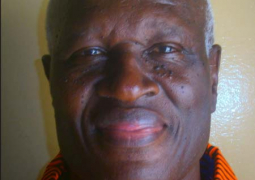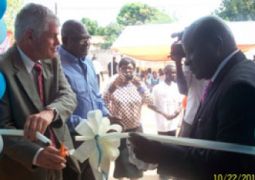The other accused persons are the agency’s former PRO, Abdoulie Ceesay, former commissioner of administration, Yusupha Jatta, and the former director of intelligence and investigation, Foday Barry.
They are being tried under a 21-count charge which included economic crime, giving false information, fabricating evidence, abuse of office, negligent of official duty, theft, among others.
When the case was announced, the DPP told the court that histwo witnesses in court are state security agents who work undercover, and wanted their identity to be concealed.
He then applied for the witnesses to testify in camera.
Defence counsel Ebrima Jah objected to the application of the DPP on the grounds that this was a criminal trial, and should be held in an open court.
Moreover, the state did not give any cogent reason why the evidence of these witnesses should be heard in camera, he said, adding that justice should not only be done, but seen to be done.
The state knew that these witnesses should give evidence in public, when they chose to testify in the case.
If the state wanted to call the evidence of witnesses in camera, they should come formally, but just to say these witnesses are members of a security agency was not enough.
Counsel further stated that the accused persons are not only tried by the court, but the public is also interested and wants all the testimonies to be in the public domain.
Defence counsel Ozuma and Sunmbo Akinbo also objected, and said they were adopting the submission of their colleague.
The trial judge, however, upheld the application made by the DPP, and ordered the case to be heard in chambers.



